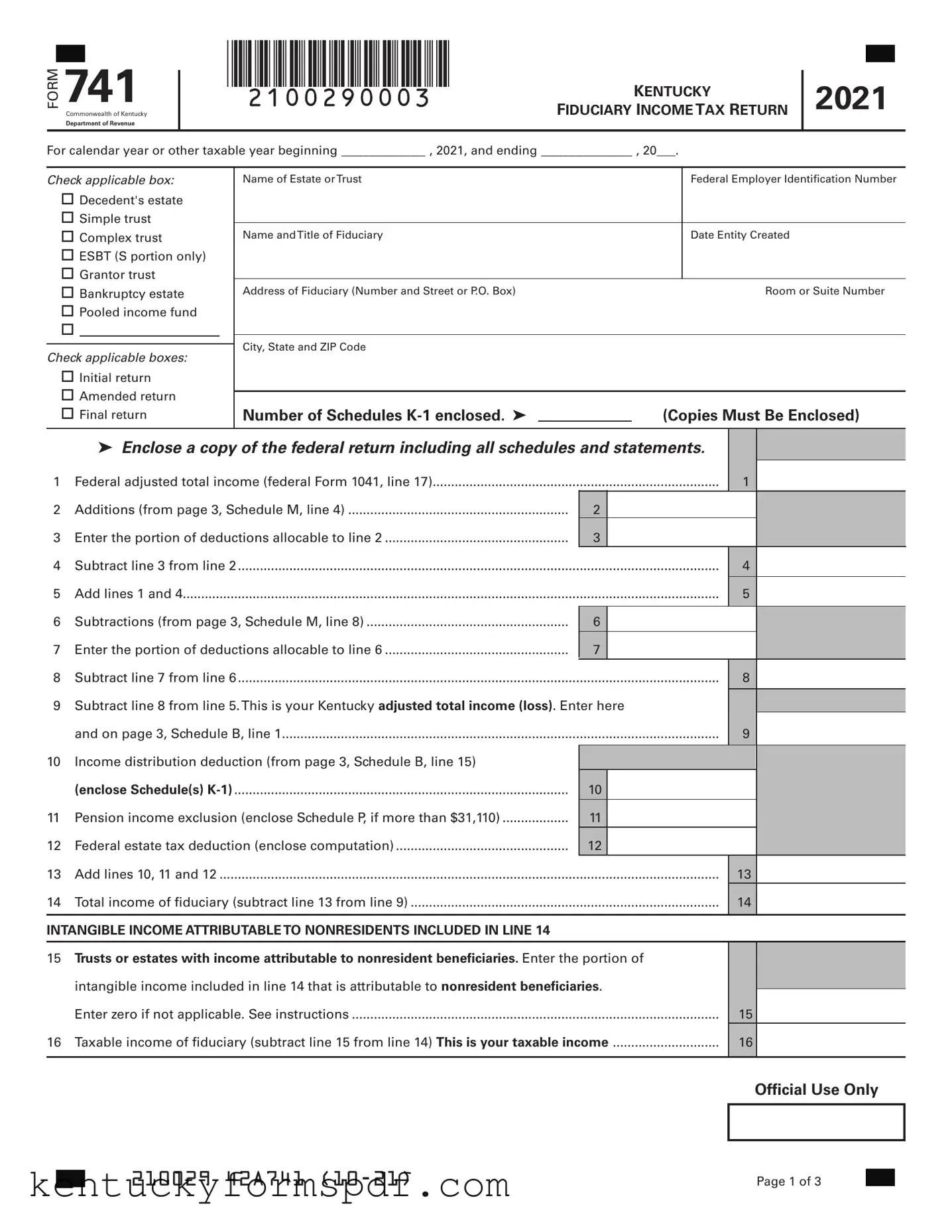What is Form 741 in Kentucky?
Form 741 is the Kentucky Fiduciary Income Tax Return, used by estates and trusts to report their income, deductions, and tax liabilities for the state of Kentucky. This form is essential for fiduciaries managing estates or trusts to ensure compliance with state tax laws. It must be completed for the applicable tax year and submitted to the Kentucky Department of Revenue.
Who needs to file Form 741?
Any fiduciary responsible for managing an estate or trust in Kentucky must file Form 741 if the estate or trust has taxable income. This includes decedent's estates, simple trusts, complex trusts, grantor trusts, and bankruptcy estates. If the estate or trust has no taxable income, filing may not be necessary, but it's always best to check with a tax professional.
What information is required to complete Form 741?
To complete Form 741, you'll need several pieces of information. This includes the name and address of the fiduciary, the federal employer identification number, and details about the estate or trust. You will also need to provide federal adjusted total income, any additions or subtractions to that income, and details about distributions made to beneficiaries. Additionally, attaching a copy of the federal return, including all schedules and statements, is required.
What are Schedules K-1, A, and B in relation to Form 741?
Schedules K-1, A, and B are essential parts of Form 741. Schedule K-1 reports each beneficiary's share of income, deductions, and credits, which must be attached to the return. Schedule A is used to claim charitable deductions if applicable, while Schedule B outlines the income distribution deduction, which can reduce the taxable income of the estate or trust. These schedules help ensure accurate reporting and compliance with tax obligations.
What should I do if I need to amend Form 741?
If you discover an error after submitting Form 741, you can file an amended return. Check the appropriate box on the form to indicate that it is an amended return. Provide a clear explanation of the changes made, and attach any necessary documentation. It's important to file the amended return as soon as possible to avoid potential penalties and interest on any additional taxes owed.

